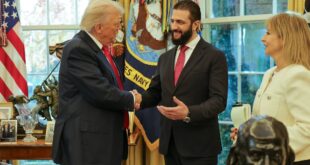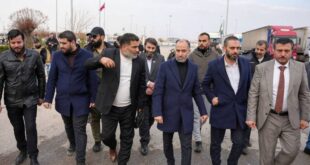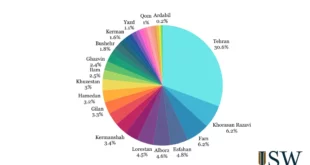MORONI — Amid persistent poverty and a shaky federal union between its three islands, the coup-plagued Indian Ocean archipelago of Comoros celebrated independence on Wednesday with a Cabinet reshuffle.
Announced on the eve of the 30th anniversary of the Comoros’ July 6, 1975 independence from France, the changes saw the country’s defence minister, Houmed Msaidie, and foreign minister, Soeuf Mohamed El Amine, removed from their posts.
In a presidential decree published on Tuesday, Msaidie was appointed a minister of state and director of the presidential Cabinet and replaced by Abdou Madi Mari, who keeps the post he previously held as head of territorial security.
Diplomatic sources said Amine would be named head of the national oil company replacing his successor as top diplomat, Aboudou Soefou.
The changes were seen as an effort by President Azali Assoumani to consolidate power after earlier overtures intended to woo support from the sister isles of Grand Comores, Anjouan and Moheli that make up the Union of Comoros flopped.
Last month, Comoros lawmakers voted to uphold the country’s rotating presidency system, thwarting a controversial bid by Azali to seek a second consecutive term in office.
In early June, the parliament adopted legislation ensuring the presidency will next year pass to a representative from Anjouan after forcing the withdrawal of a bill prepared in April by Azali’s government on Grand Comore that would have circumvented the rotation.
The Union of the Comoros, formerly the Federal Islamic Republic of Comoros, was formed in 2001 by the three autonomous islands in an attempt to maintain the country as a sovereign entity in the wake of 1997 secession bids by Anjouan and Moheli.
With some 20 coups d’etat — four of them successful, including Azali’s own power grab in 1999 — since independence, Comoros has been in the throes of instability and poverty for three decades.
More than 50 per cent of households live in poverty and political instability has dwarfed economic development, scaring away potential international investors, according to analysts and some in the islands’ business community.
“We need to tell ourselves that nobody will come to invest his money here if we continue to show that we are an unstable country,†said a businessman in the capital Moroni.
“Comoros has never been assuring to investors,†the man said on condition of anonymity. “There is a lack of confidence and we will be paying for it for a long time.â€
According to World Bank estimates, Comoros’ gross domestic product stood at $390 (327 euros) and had an external debt of $267 million (224 million euros) in 2002.
And without modern industries, Comoros depends heavily on colonial-era agriculture based on vanilla and clove exports — its main foreign exchange earners — that are now suffering from low prices on world markets.
The exports only cover 54 per cent of imports, thus causing heavy deficit in the balance of payments.
 Eurasia Press & News
Eurasia Press & News


